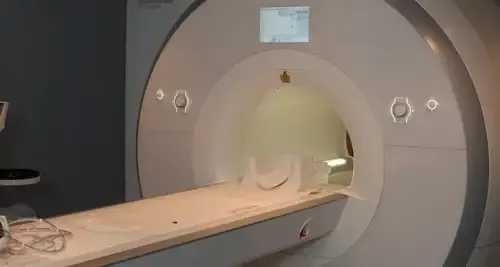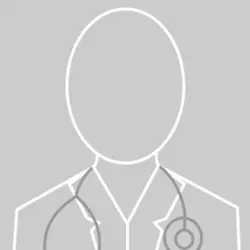Childhood Epilepsy
"Most of the child's epilepsies are controlled with antiepileptic drugs that hardly cause any side effects on learning, although it is very important to follow up".
DR. ALBERTO VIECO GARCÍA
SPECIALIST. NEUROPEDIATRICS UNIT

Childhood epilepsy is a chronic disease resulting from abnormal electrical discharge from neurons in the cerebral cortex. In general, they are benign, transient and reversible. About 70% of them are controlled or cured with drugs.
The professionals of the Clínica Universidad de Navarra who treat childhood epilepsy are part of the Neuropediatrics Unit and coordinate with the rest of the members of the Epilepsy Unit (neurologists, neurophysiologists, neurosurgeons, neuroradiologists and neuropsychologists) to carry out the evaluation and comprehensive treatment of the child. They also evaluate their influence on the cognitive and academic performance of the child.
When epilepsy is rebellious or refractory to treatment with medication and significantly alters the quality of life of the child, it is possible to perform surgical treatment.
Also in some children with epilepsy rebellious, especially between 3 and 5 years, you can use a special diet, the kethogenic diet, which in some cases can be very effective. It consists of reversing the ratio of fat to carbohydrates that are given to the child.

What are the symptoms of childhood epilepsy?
Partial or focal crises
- Simple (without loss of consciousness).
- Complex (with loss of consciousness).
The manifestations are related to the cerebral function of the region where the crisis originates.
Generalized crises
- Absences. Loss of consciousness next to child's activity stop.
- Atonic. Sudden fall due to loss of muscle tone.
- Generalized tonic. General muscle contraction.
- Generalized tonic-clonic. Body stiffness with generalized muscle twitching.
Does your child have any of these symptoms?
You may have childhood epilepsy
What are the causes of childhood epilepsy?
There are several factors that can be indicators of this disease. However, none of them are sufficient to explain epilepsy, but will be the neuropediatrician who determines whether they are related to the symptoms of the child.
Some of these factors are:
- Family history of epileptic seizures, or febrile seizure.
- When other close family members have epilepsy, with very specific exceptions associated with certain diseases, it is a good prognosis epilepsy in the child.
- Presence in the skin of light-colored spots in one of the parents (sometimes associated with Bourneville's tuberous sclerosis).
- Notion of difficulties during pregnancy, delivery.
- Previous severe infectious disease (meningitis).
- Head trauma, etc.
- However, in most epilepsies none of these factors are found.
What is the prognosis of childhood epilepsy?
70% of patients with generalized idiopathic epilepsies are cured.
The percentage of cure depends on the type of epilepsy. Thus, patients affected by generalized idiopathic epilepsies, such as child absence or tonic-clonic seizures of awakening, have a 70% chance of cure and do not require further medication after a period of 2 to 5 years.
In contrast, in focal epilepsies about 50% of patients, whose attacks are fully controlled with medication, may come to dispense with treatment after 5 years.
There are some forms of epilepsy that have a particular prognosis, such as juvenile myoclonic epilepsy, which generally responds very well to treatment, but has a high tendency to reappear when trying to withdraw treatment.
How is childhood epilepsy diagnosed?

After the history of the child's background and psychomotor development, an attempt is made to describe the crisis in detail:
- The age of onset
- The circumstances (the time, the existence or not of a fever)
- The type of paroxysmal manifestations (for example, if limited to one side of the body)
- The duration
- The frequency of repetition (if any)
If possible, the child is asked what he or she notices before the crisis.
A complete physical examination of the patient is also performed, with special attention to the skin, psychomotor development and neurological examination.
The most useful test to characterize epilepsy is the electroencephalogram, which records the electrical activity generated by the neurons in the cerebral cortex. If the electroencephalogram is recorded during a seizure, you have more information about the onset and development of the seizure, but usually not possible.
In the child, it is necessary to try to make him/her sleep during this test, because this improves the technical quality of the exam and makes it possible to record anomalies that are detected only during sleep. For this, we try to get the child up early this day or register him/her at nap time, etc.
During the electroencephalographic recording, techniques are used to measure the brain's reactivity (opening and closing the eyes, breathing deeply, receiving light stimuli). Sometimes, it is necessary to record the child for several hours in a row, including one night, usually collecting video images in case he has any crisis, in order to relate it in real time with the EEG activity.
Other necessary tests, depending on the case, include a brain nuclear magnetic resonance, which is usually performed with specific cuts and sequences for patients with epilepsy, analytical, genetic studies and psychoeducational evaluation.
How is childhood epilepsy treated?
Epilepsy is one of the most effectively treated diseases of the child's central nervous system.
- Approximately 75% of patients are controlled with medication.
- 64% of children who have had epilepsy, will be in remission in adulthood, and of these, only 16% will remain under drug treatment.
- About 5% of patients in whom epilepsy is not controlled by medication may be candidates for epilepsy surgery. With this technique up to 75% of them can be free of crisis.
Epilepsy is not a single disease but comprises a set of different clinical entities with different treatments and prognoses. It is very useful, therefore make an appropriate classification of the type of epilepsy that presents each child and the syndrome in which it can be framed. This helps to choose the most effective treatment with the least side effects.
In recent years, clinical research in childhood epilepsy has succeeded in identifying different syndromes and establishing the prognosis and the most effective drugs for their treatment.
If side effects are observed, the prescribing physician should be notified.
Will treatment influence the child's learning?
Parents often have questions about whether antiepileptic treatment will interfere with their child's learning. As a general rule, a properly prescribed drug at the required doses does not produce effects on the cognitive system that interfere with learning.
In addition, inadequate control of some epilepsies can have negative effects on learning, so treatment may even be beneficial to school performance.
However, it is desirable to evaluate the cognitive functions of children with certain types of epilepsy and often obtain data that help adjust treatment.
A small percentage of children are not controlled by drug treatment. It is important in these patients to check that the right drugs have been used, at the right doses, alone or in association with others.
Who are candidates for epilepsy surgery?
About 1% are candidates for surgical treatment. This is when:
- The crises are rebellious to drugs.
- They compromise the development or normal life of the child.
- It is found that all arise frOm the same focus provided that this is not the site of a major brain function.
In some children with rebel epilepsies, especially between the ages of 3 and 5, a special diet can be used, the ketogenic diet.
It consists of reversing the ratio between fat and carbohydrates that are given to the child.
It is a diet with certain difficulty to realize, but in some cases it can be very effective.
What clinical trials do we have on Childhood Epilepsy?
Where do we treat it?
IN NAVARRE AND MADRID
The Neuropediatrics Unit
of the Clínica Universidad de Navarra
The Unit is part of the Department of Pediatrics and works closely with specialists from other departments to provide integrated care for children and adolescents with risk factors or diseases affecting the central nervous system and neuromuscular system.
It is made up of a team of neuropediatric specialists and psychopedagogues.
Diseases we treat
- Early development and its deviations.
- Motor control disorders.
- Global developmental disorders. Autism.
- Epilepsy in children. Dravet syndrome.
- Sleep disorders.
- Attention deficit and hyperactivity disorders. ADHD.

Why at the Clinica?
- Teamwork to offer a valuation in 24 hours.
- Most experienced nationally in Dravet Syndrome.





